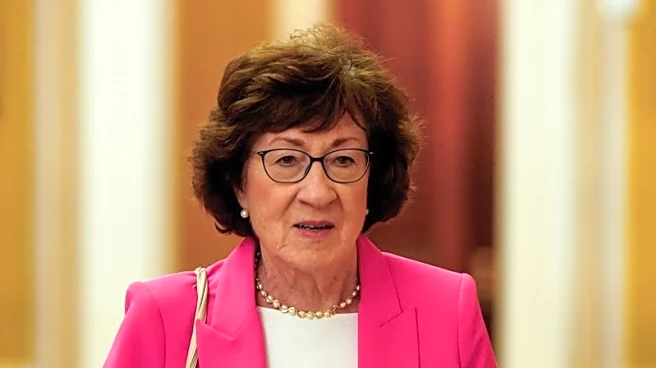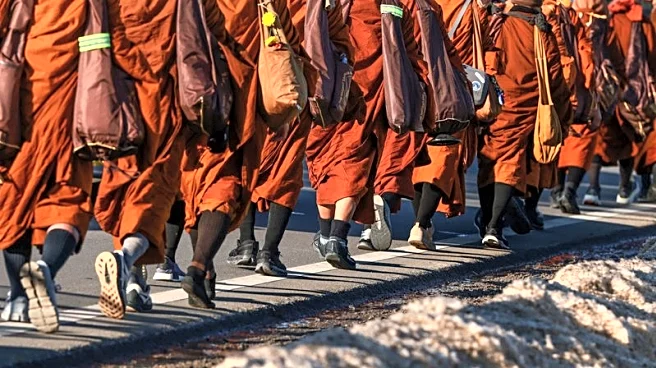What's Happening?
The International Rescue Committee (IRC) has announced the suspension of all its aid programs in Gaza City due to escalating dangers following an Israeli military offensive. Bob Kitchen, head of emergencies at the IRC, explained that the decision was made as conditions became increasingly perilous for their staff and the local population. The IRC had been providing essential services such as distributing clean water, nutritional screening for malnourished children, and trauma care for women and children. However, the intensifying bombardment and the presence of tanks forced many staff members to evacuate, leaving critical humanitarian needs unmet. Despite the evacuation warnings, some staff initially chose to stay to support their communities but ultimately had to withdraw for safety.
Why It's Important?
The suspension of IRC's programs in Gaza City highlights the severe humanitarian crisis exacerbated by the ongoing conflict. With half a million people remaining in the city, the lack of aid services increases the risk of malnutrition, health issues, and trauma among the population. The IRC's withdrawal signifies a significant reduction in humanitarian assistance, leaving many without access to basic necessities. This development underscores the urgent need for international intervention and support to address the dire conditions faced by civilians in Gaza. The situation also raises concerns about the broader implications of military actions on civilian populations and the responsibilities of international organizations in conflict zones.
What's Next?
The IRC's decision to suspend operations may prompt other aid organizations to reassess their presence in Gaza City, potentially leading to further reductions in humanitarian aid. The international community may face increased pressure to respond to the crisis, especially in light of allegations of genocide and famine conditions reported by the U.N. Human Rights Council. Stakeholders, including governments and humanitarian groups, may need to explore alternative methods to deliver aid and protect civilians amidst the conflict. The situation calls for diplomatic efforts to ensure safe passage for aid and to address the root causes of the humanitarian crisis.
Beyond the Headlines
The suspension of aid programs in Gaza City raises ethical questions about the responsibilities of humanitarian organizations in conflict zones. The decision to prioritize staff safety over service delivery reflects the complex challenges faced by aid groups operating in dangerous environments. Additionally, the crisis in Gaza highlights the broader geopolitical tensions in the region and the impact of military actions on civilian populations. The situation may influence future policies on humanitarian aid delivery and the role of international bodies in conflict resolution.









